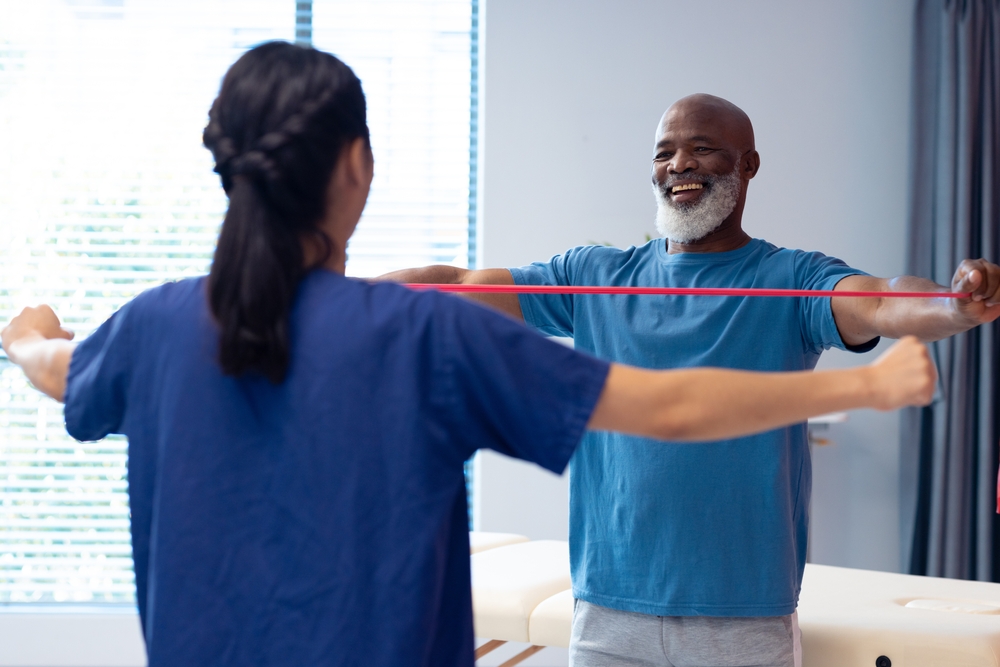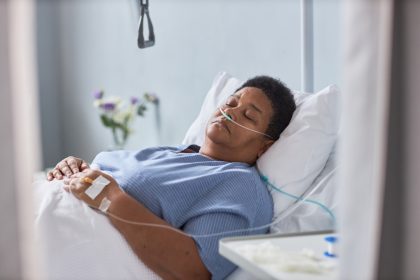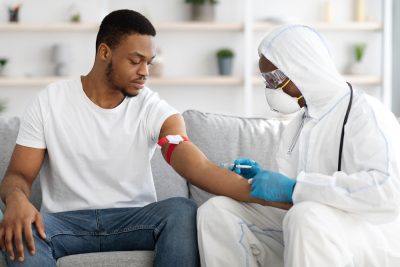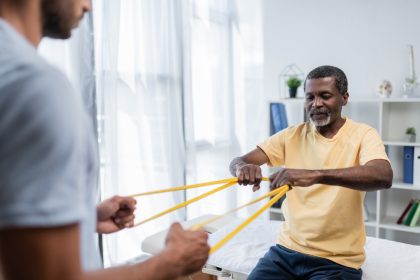Recovering from a stroke presents one of life’s most significant challenges. Stroke survivors often face complex physical, emotional, and cognitive hurdles that fundamentally alter their daily lives. Rehabilitation plays an essential role in helping individuals rebuild their capabilities and regain independence. Understanding these benefits helps patients and families commit to the recovery process.
Physical recovery and mobility
After a stroke, many individuals experience weakness or paralysis, particularly on one side of their body. Rehabilitation provides structured support for restoring physical capabilities through targeted therapies and exercises. Physical therapists work closely with patients to rebuild strength, improve balance, and enhance coordination needed for daily activities.
These programs utilize various techniques to support recovery. From guided exercises to specialized equipment, rehabilitation helps patients regain control over their movements. Physical therapy sessions focus on essential skills like walking, reaching, and maintaining balance. Therapists also help patients adapt to temporary or permanent changes in their physical abilities.
Communication restoration
Stroke often affects communication abilities, causing conditions like aphasia that impair speaking, comprehension, reading, or writing. Speech therapy becomes crucial for rebuilding these fundamental skills. Speech-language pathologists develop personalized programs that address each patient’s specific challenges.
These specialists employ various techniques to help patients regain communication abilities. From exercises focusing on word formation to strategies for reading comprehension, therapy sessions help stroke survivors reconnect with their world through improved communication. This recovery process helps maintain social connections and supports emotional well-being.
Cognitive function improvement
Cognitive challenges following a stroke can affect memory, concentration, and problem-solving abilities. Rehabilitation programs incorporate specific exercises designed to strengthen these mental capabilities. Occupational therapists work with patients to rebuild essential cognitive skills through structured activities and exercises.
These cognitive rehabilitation sessions help patients regain independence in managing daily tasks. From organizing schedules to handling financial matters, improved cognitive function supports greater autonomy. Therapists also teach strategies for compensating when certain abilities remain affected.
Prevention of complications
Regular rehabilitation helps prevent numerous secondary complications that can arise after a stroke. Physical activity and proper positioning reduce risks of muscle contractures, joint problems, and pressure sores. Therapists teach patients and caregivers proper techniques for movement and positioning to maintain joint flexibility and skin health.
Rehabilitation also addresses swallowing difficulties that might lead to aspiration pneumonia. Speech therapists evaluate and treat these issues, helping patients maintain proper nutrition while preventing respiratory complications. This preventive aspect of rehabilitation proves crucial for long-term health outcomes.
Emotional support and adjustment
The emotional impact of stroke recovery often proves as challenging as physical rehabilitation. Many survivors experience depression, anxiety, or frustration while adapting to changes in their abilities. Rehabilitation programs incorporate psychological support through counseling and group sessions.
These emotional support components help patients process their experiences and maintain motivation during recovery. Support groups connect survivors with others facing similar challenges, creating valuable networks for sharing experiences and coping strategies. This emotional resilience contributes significantly to overall recovery success.
Enhanced daily living skills
Rehabilitation focuses intensively on helping stroke survivors regain independence in daily activities. Occupational therapists work with patients to remaster essential tasks like dressing, preparing meals, and maintaining personal hygiene. These programs adapt to each individual’s specific needs and goals.
Therapists also help patients learn new ways to accomplish tasks when traditional methods prove challenging. This might include using adaptive equipment or developing alternative strategies for common activities. These skills directly impact quality of life and independence.
Family and caregiver involvement
Successful rehabilitation extends beyond individual therapy sessions to include family education and support. Rehabilitation programs teach family members and caregivers proper techniques for assisting with exercises, transfers, and daily activities. This knowledge helps create a supportive environment for continued recovery at home.
Caregivers learn to recognize signs of complications and understand when to seek additional medical help. This education helps families provide effective support while preventing burnout. Regular family involvement in rehabilitation also strengthens support networks essential for long-term recovery.
Long-term recovery outlook
Rehabilitation’s impact extends well beyond initial recovery phases. Continued participation in therapy programs helps patients maintain gains and potentially achieve additional improvements over time. Understanding this long-term perspective helps patients and families maintain motivation during challenging periods.
Regular evaluation of progress allows therapists to adjust programs as patients improve or face new challenges. This adaptive approach ensures rehabilitation continues supporting recovery goals throughout the journey. Even years after a stroke, rehabilitation can help patients maintain function and independence.
Moving forward with hope
Rehabilitation provides essential support for stroke survivors working to rebuild their lives. Through comprehensive programs addressing physical, cognitive, and emotional needs, patients receive the tools necessary for maximizing recovery potential. This structured approach to recovery, combined with family support and proper medical care, offers the best opportunity for regaining independence and quality of life after stroke.
This story was created using AI technology.













